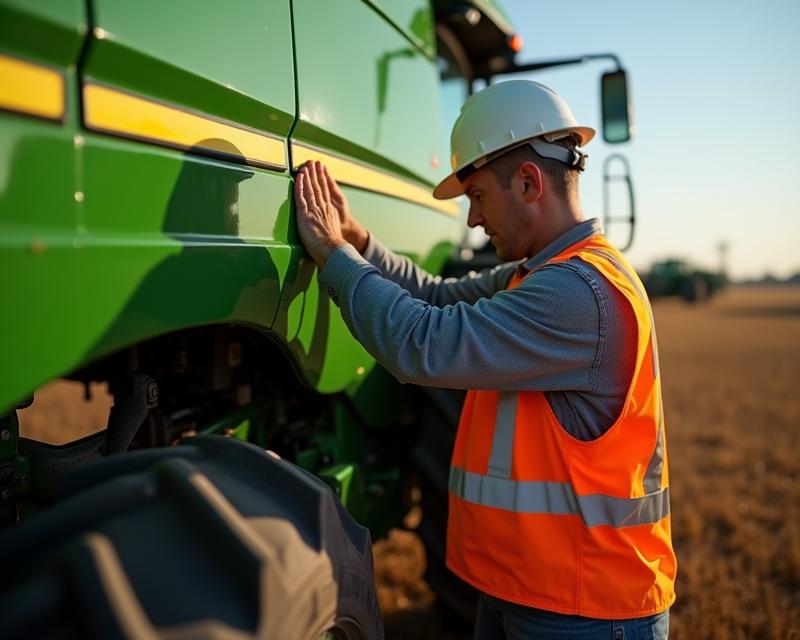Farm Equipment Safety: Stay Safe!
Publish in Sustainable Farming el 04/07/2025 15:50
Farm Equipment Safety: Stay Safe!
Operating heavy farm equipment is essential for modern agriculture, but it also comes with inherent risks. Whether you're tilling fields, harvesting crops, or managing livestock, understanding and following safety protocols is paramount. A little caution can prevent serious injuries and ensure a long, productive career on the farm. This article outlines some key safety practices to keep in mind.

Pre-Operation Checks: Your First Line of Defense
Before starting any equipment, always perform a thorough pre-operation check. This isn't just a formality; it's about identifying potential problems *before* they become dangerous. Check fluid levels (oil, coolant, hydraulic fluid), tire pressure, brakes, lights, and all safety devices like seatbelts and roll-over protection systems (ROPS). Look for any signs of wear and tear – loose bolts, frayed wires, or damaged hoses. Don't hesitate to address any issues – a small problem can quickly escalate into a major safety hazard.
Safe Operating Practices: Awareness is Key
Once the equipment is ready, focus on safe operating practices. Always be aware of your surroundings. Pay attention to pedestrians, other vehicles, and obstacles. Maintain a safe distance from ditches, embankments, and power lines. Never operate equipment under the influence of alcohol or drugs, and avoid distractions like cell phones. When working with machinery, communicate clearly with anyone nearby. Use hand signals and establish a clear line of sight. Remember, speed is not always safety – operate at a speed that allows you to maintain control and react to unexpected situations.
Maintenance Matters: Keeping Equipment in Top Shape
Regular maintenance is crucial for safe operation. Follow the manufacturer's recommended maintenance schedule for all equipment. This includes regular inspections, lubrication, and replacement of worn parts. Don't ignore warning lights or unusual noises – these could indicate a developing problem. Proper maintenance not only extends the life of your equipment but also significantly reduces the risk of breakdowns and accidents. Consider investing in professional maintenance services for complex machinery. A well-maintained machine is a safer machine.
Training and Education: Invest in Yourself
Proper training is an investment in your safety and the safety of those around you. Familiarize yourself with the equipment's operating manual and safety features. Attend safety training courses offered by agricultural organizations or equipment manufacturers. Continuously update your knowledge of best practices. Sharing safety information with other farmworkers is also important. A culture of safety starts with education and open communication. By prioritizing safety, you can protect yourself, your family, and your livelihood.
- Always wear appropriate personal protective equipment (PPE), such as sturdy boots, gloves, and eye protection.
- Never allow passengers on equipment not designed for them.
- Be extra cautious when operating equipment on slopes.
- Ensure proper lighting, especially when working at night or in low-light conditions.





